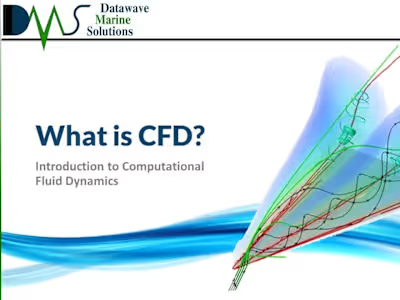Project One
Like this project
Posted Sep 14, 2023
This was a research I conducted on the impacts of social media on teenagers.
Likes
0
Views
3
Tags
Impacts of Social Media on Mental Health
Technology advancements have revolutionized the world and changed how people perform various tasks and approach their livelihoods. In particular, the growth of social media platforms such as Instagram, Snapchat, Facebook, and Twitter has transformed how people communicate, share information, and interact in virtual environments (Naslund et al., 2020). In the last few decades, social media has become an integral aspect and prevalent among people worldwide, with many people acknowledging that they spend a considerable amount of time on the platforms. Consequently, the platforms enhance the users' mental health by offering opportunities for emotional support through online groups, forums, and communities that help them navigate through difficult moments. Nevertheless, Naslund et al. (2020) argue that social media has detrimental impacts on mental health by exposing individuals to experiences that adversely affect their psychological well-being. Despite social media providing unprecedented opportunities for emotional support and social connectedness, the platforms negatively impact users’ mental health due to potential instances of consumption of negative content, cybersecurity threats, security breaches, and social comparisons.
Consumption of negative content on social media platforms can lead to mental health challenges such as vicarious trauma, anxiety, high-stress levels, and heightened distress and depression levels. Boer et al. (2020) explain that young people who use social media frequently encounter negative content that can trigger vicarious trauma due to witnessing horrific experiences that interfere with their mental well-being. Studies define vicarious trauma as emotional disturbances such as hyperarousal and nightmares from exposure to traumatic experiences on such online platforms. Additionally, consumption of negative content like sensitive graphic images and distressing news can increase the users’ anxiety levels as they become overwhelmed and emotionally unstable (Boer et al., 2020). By experiencing disturbing content, individuals become anxious about the probability of such negative events happening in their lives, adversely affecting their psychological health. Moreover, such experiences can exacerbate stress levels as negative content often include crisis, real-world problems, and conflicts that lead to emotional disturbances. Boer et al. (2020) outline that consumption of disturbing content can fuel distress and depression levels among users due to triggering negative thoughts that interfere with mental functioning. Therefore, negative content poses significant mental challenges to social media users as they scroll and navigate through online platforms.
The increased prevalence of cybersecurity threats in social media, such as cyberbullying and hacking, can potentially harm users' psychological well-being due to privacy concerns, social isolation, and emotional distress. Cyberbullying invades users’ privacy in online platforms and triggers feelings of mistrust and fear when sharing critical information online as they acknowledge the possibility of their data being misused or exploited (Tariq & Mishra, 2020). As a result, social media users develop privacy concerns, which leads to emotional disturbance and anxiety that decreases their mental well-being as they fear falling victim to such cybersecurity threats. Also, Tariq & Mishra (2020) explain that individuals tend to seek social isolation after experiencing cybersecurity threats as they might withdraw from social media platforms to uphold their privacy. Social isolation from online circles can limit the users from interacting and communicating effectively with other people, leading to loneliness that has detrimental consequences on mental health. Moreover, experiencing cyberbullying or hacking can trigger emotional distress among individuals as they constantly worry about the safety of their personal information when using social media (Tariq & Mishra, 2020). Studies show that emotional distress decreases the mental well-being of the affected social media users.
4
Security breaches in social media platforms pose considerable mental health challenges to the victims as they experience feelings of stigmatization, trust erosion, and increased anxiety and stress levels. Keles et al. (2019) argue that security breaches lead to stigmatization as the victims face judgment and condemnation from other social media users after their sensitive information is leaked without their consent. Considering social media comprises numerous users, the online community can stigmatize the victims of security breaches, leading to emotional distress and poor mental health. Additionally, security breaches can erode the trust of social media users as they become wary of their online safety and protection of personal data to avoid falling victim again (Keles et al., 2019). Such trust issues can interfere with the users’ cognitive functioning especially when using social media platforms, limiting their emotional and psychological well-being. Keles et al. (2019) outline that the potential consequences of security breaches including financial losses and identity theft can lead to increased anxiety and stress levels among the victims. Due to users constantly thinking about their financial and personal well-being, they can develop dangerous anxiety and stress levels that can limit their cognitive functioning and lead to poor mental health.
Social media facilitates social comparisons that can negatively impact the users' mental health by triggering feelings of body image dissatisfaction, unrealistic expectations, and diminished sense of self-worth. Social media platforms like Snapchat and Instagram emphasize mainly physical appearances, which can result in body image dissatisfaction as users compare their appearances with those of celebrities and influencers (Zsila & Reyes, 2023). Body image dissatisfaction can foster feelings of low self-esteem and social isolation, leading to poor mental health as individuals constantly think of their shortage in physical appearance. Also, Zsila & Reyes (2023) explain that social media promotes unrealistic experiences among users, which can result in discontent and disappointments that decrease mental health. For instance, individuals can compare themselves with others on social media platforms and set unrealistic relationships or life goals, which leads to disappointments when they fail to achieve them. Lastly, social comparisons in social media can foster feelings of inadequacy and diminished sense of self-worth as users compare their experiences, appearances, and achievements with those portrayed on the platforms (Zsila & Reyes, 2023). Due to such comparisons, social media users may develop low self-esteem and self-doubt, which can significantly affect their psychological well-being.
Nevertheless, social media provide credible opportunities for emotional support by encouraging users to share experiences, join support groups, and access resources that empower their mental health. Leimonis & Koutra (2022) argue that social media provide platforms where individuals can share experiences and open up about their challenges to psychological experts, hence gaining emotional support that enhances their mental health. By sharing their experiences in online groups and communities, users feel less emotional burden and think clearly, making social media a vital aspect of their lives. Additionally, Leimonis & Koutra (2022) outline that individuals can join online support groups where they can gain awareness and discuss mental health challenges that can affect them. Consequently, such knowledge helps individuals to engage in relevant practices that supplement their mental health, which would be impossible without social media platforms. Also, proponents argue that social media enable individuals to access mental health resources such as informative content, self-help tools, and helplines that help them deal with cognitive issues and empower their psychological well-being (Leimonis & Koutra, 2022). Such mental health resources inform individuals on proactive steps of enhancing their mental health and responding to psychological challenges, which social media avails to the users. Additionally, proponents argue that social media enhances social connectedness by establishing relationships, fostering empathy, and reducing feelings of loneliness and isolation. Social media help individuals to establish relationships by connecting with their friends and families regardless of their geographical locations due to the platforms' global reach. For instance, during the COVID-19 pandemic when movement was restricted, social media platforms such as Facebook and Instagram enabled people to connect and build relationships in virtual environments, which boosts their mental health (Marciano et al., 2022). Additionally, social media foster understanding and empathy by exposing individuals to diverse experiences and perspectives that supplement their mental health. Marciano et al. (2022) explain that social media broadens users' perspectives regarding the world around them, which helps them become less judgmental and more tolerant, which is ideal for necessary psychological well-being. Lastly, social media offers virtual spaces where lonely and isolated people can communicate and interact with others, which combats negative feelings and reduces the prevalence of developing mental health challenges (Marciano et al., 2022). Through the creation of online spaces, social media platforms help individuals overcome loneliness and isolation feelings, boosting their mental well-being and helping them overcome underlying psychological issues. In conclusion, social media has adverse impacts on mental health due to challenges posed by exposure to negative content online, cybersecurity threats, security breaches, and social comparisons. Consumption of negative content decreases mental health by exposing individuals to heightened stress and anxiety levels, vicarious trauma, and depression. Cybersecurity threats such as hacking and cyberbullying lead to social isolation, privacy concerns, and emotional distress that potentially harm the psychological health of social media users. Additionally, security breaches can potentially lead to stigmatization, increased stress and anxiety levels, and eroded trust that inhibits users' mental functioning. Also, individuals can develop serious mental health challenges due to body image dissatisfaction and diminished self-worth that arise from social comparisons on online platforms. However, social media offers considerable benefits to users such as emotional support and social connectedness, which enhances their psychological well-being. Nevertheless, social media poses significant mental health challenges to users, highlighting the need for increased awareness and regulation of the platforms to combat the negative consequences.
8
References
Boer, M., Van den Eijnden, R. J., Boniel-Nissim, M., Wong, S., Inchley, J. C., Badura, P., Craig, W. M., Gobina, I., Kleszczewska, D., Klanšček, H. J., & Stevens, G. W. (2020). Adolescents' intense and problematic social media use and their well-being in 29 countries. Journal of Adolescent Health, 66(6), S89-S99. https://doi.org/10.1016/j.jadohealth.2020.02.014 Keles, B., McCrae, N., & Grealish, A. (2019). A systematic review: The influence of social media on depression, anxiety and psychological distress in adolescents. International Journal of Adolescence and Youth, 25(1), 79-93. https://doi.org/10.1080/02673843.2019.1590851 Leimonis, E., & Koutra, K. (2022). Social media use and mental health in young adults of Greece: A cross-sectional study. Clinical Psychology in Europe, 4(2), 1-20. https://doi.org/10.32872/cpe.4621 Marciano, L., Ostroumova, M., Schulz, P. J., & Camerini, A. (2022). Digital media use and adolescents' mental health during the COVID-19 pandemic: A systematic review and meta-analysis. Frontiers in Public Health, 9, 1-28. https://doi.org/10.3389/fpubh.2021.793868 Naslund, J. A., Bondre, A., Torous, J., & Aschbrenner, K. A. (2020). Social media and mental health: Benefits, risks, and opportunities for research and practice. Journal of Technology in Behavioral Science, 5(3), 245-257. https://doi.org/10.1007/s41347-020-00134-x Tariq, M., & Mishra, K. (2020). Impacts of Social Media on Mental Health. International Journal of Creative Research Thoughts (IJCRT), 8(9), 1477-1498. https://ijcrt.org/papers/IJCRT2009197.pdf
9
Zsila, Á., & Reyes, M. E. (2023). Pros and cons: Impacts of social media on mental health. BMC Psychology, 11(1), 1-2. https://doi.org/10.1186/s40359-023-01243-x



